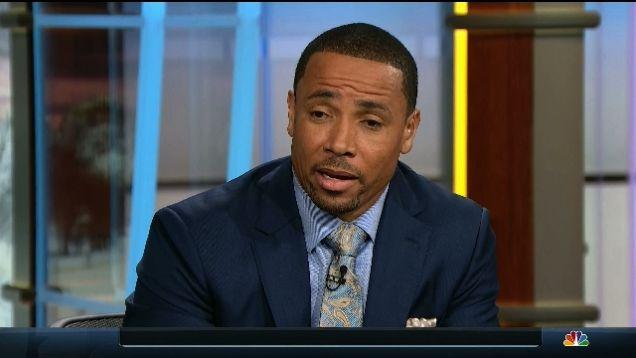
There was much revealed when former New England Patriot and current NBC football analyst Rodney Harrison criticized the San Francisco 49ers quarterback Colin Kaepernick for not being Black in reference to Kaepernick’s National Anthem boycott to call attention to police brutality and other racial injustices. It didn’t stop with Harrison, he was joined by Hall of Famer Jerry Rice and current New York Giants star Victor Cruz in criticizing Kaepernick.
Harrison’s critique, for which he later apologized after triggering a social media backlash, is more than about self-hate, which is the usual explanation when a Black person criticizes another for taking a racially-based stand. It also should not be attributed to an attention getting move by Harrison. He has established himself as a very competent and popular on-air commentator. This was about a deeper reality that continues to plague Black people in America, particularly Black professionals.
Once ensconced institutionally in America, Blacks are socialized to surrender our cultural identity to be accepted into ‘mainstream’ (white) society. We are encouraged to be ambiguously Black. In many ways it’s just another version of the ‘seasoning’ that took place in the trans-Atlantic slave trade. It is why hair continues to be a source of conflict in the workplace. You can possess an Ivy League degree, be expert in your field with a list of accomplishments that are the envy of your profession, but show up in the office with twists or locks and see how quickly you are downgraded. It runs much deeper than appearances though. To be ‘normalized,’ Black professionals must not only separate themselves from any racial identification in the workplace, they often have to stand counter to any justified claims of discriminatory treatment. It is beyond even what some would attribute to being an Uncle Tom. I don’t believe Harrison sees himself as white, just exceptionally Black. Many Black professionals convince themselves that their success is a post-racial outcome and once embraced within institutions, cannot separate their personal circumstance from the dynamics of institutional racism. I am certain Rodney Harrison is treated well by NBC Sports. Like many Black professionals his good fortune has blinded him to the operation of systemic bias and the impact on masses of Blacks in America.
From the earliest stages of my professional career I made it a habit of keeping a framed poster of Malcolm X in my office. The poster is the famous photograph of Malcolm peering out the window, with a rifle in one hand. The caption under the photo is “By Any Means Necessary.” It always made some of my co-workers uneasy and I understood that. In fact, it was a great tool to spark conversations on race that otherwise might not have occurred or confront questions that would have idled in the minds of white colleagues. I kept the poster not as a tool to intimidate but to affirm my cultural standing. I had to explain this to a white, female board member of the New York Trial Lawyers Association when I served as the director of public affairs for that organization, and she expressed her unease over the poster to the executive director. The poster remained in my office.
Harrison’s reaction to Colin Kaepernick’s refusal to stand for the National Anthem was not a knee-jerk reflex. It was programmed. In essence by stating “he’s not Black” in reference to Kaepernick, what Harrison was really saying is “he’s too Black.” We are trained to defend the institution, whether it’s the company that’s guilty of racial discrimination in hiring and promotion, or the nation that’s guilty of racial oppression. In fact, we are often rewarded for being the firewall between racially rooted wrongdoing and the truth and justice. It’s why so many Blacks end up walking out the corporate door or finding themselves escorted out by security. For the deeply conscious, Black life in corporate America is a test of patience and a game of survival; and quite frankly, for many Blacks, the only means of survival is to submit in silence or gain favor by dismissing your own humanity.
The real loser, perhaps I would dare say victim, is Rodney Harrison. History is a cruel judge. In decades to come the contemporary debate on Black lives will be settled by the historical record, much like the civil rights movement. The record will not be kind to those, including Blacks, who cowered, made excuses or stood in opposition to a movement for justice and healing in our nation.
Walter Fields is Executive Editor of NorthStarNews.com.












